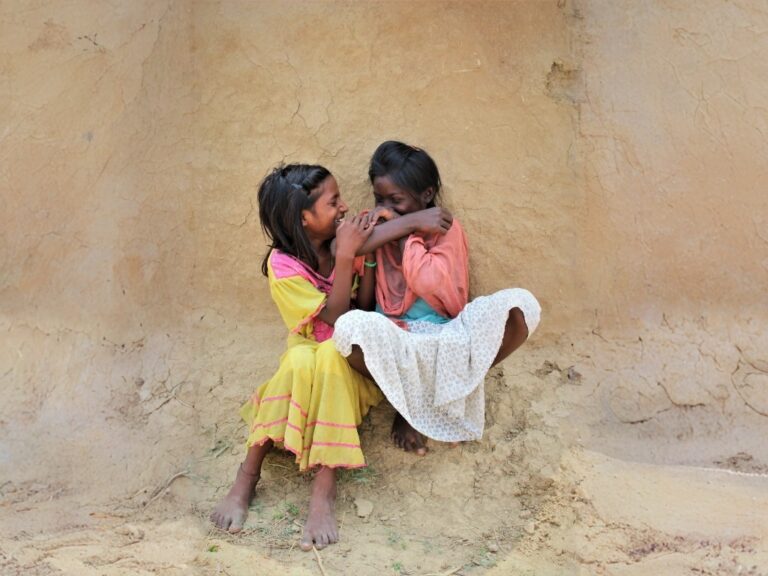Elvis the Pig
How Befriending a Pig Reshaped My Relationship with Animals Forever
Stories that shaped me
By Hari Sakti
As a child growing up in Finland, many of my summers were spent at our family’s lakeside cottage, an almost sacred tradition in Finnish culture. My memories are woven with the scent of the pine trees, the rhythm of lake water against the rocks, long days in the forest, and the quiet joy of muddy hands and bare feet rooted in the earth. Those early experiences gave me something elemental: a deep sense of connection to nature that still lives within me and in everything I do.
One of our neighbours near the cottage kept horses and a few farm animals. I had always felt a deep, intuitive bond with animals, often more naturally than with people. Dogs, horses, cats… I felt at ease in their presence, and they seemed to recognise something kindred in me. But like most children brought up in the cultural climate of 1980s Finland, I grew up eating meat. It was the norm, unchallenged and unquestioned.
Until Elvis.
I was about four or five years old the summer I met him. Excited as always to visit the animals, I ran straight to the neighbour’s property and saw a new arrival: a small, pink pig with the most curious eyes and gentle energy. His name was Elvis, named after the pop star, and I fell in love with him instantly.
That summer, Elvis and I became friends. I played with him every day, discovering quickly that he wasn’t all that different from the dogs I adored. In fact, he was even more intelligent – quick to learn tricks and eager to connect. Only later did I learn that pigs, on average, have higher cognitive abilities than dogs and even small children. But I didn’t need science to tell me that. I had met Elvis.
And then came the moment that broke my heart: I found out Elvis was being raised for slaughter. He was to be killed and served on someone’s Christmas table. I was devastated. The dots connected in my small, awakening mind – the meat on our plates came from animals like Elvis. Living beings with personalities, feelings, and a desire to live.
That summer, something fundamental shifted inside me. I couldn’t understand how we could love some animals while killing others. I didn’t have the word for it then, but I had just encountered speciesism, the idea that some species are worthy of care while others are seen as inferior or consumable. It felt no different to me than racism or any other form of prejudice.
That moment awakened something fierce and tender in me.
Later in school, we had an art assignment: colour a train full of animals and write a caption about where they were going. While others imagined circuses or magical journeys, I scribbled angry colours and wrote, “These animals are on their way to be slaughtered!” I was given detention for it. But I wasn’t trying to provoke, I was telling the truth. I was speaking from a place of heartbreak and innocence, and I still wish that teacher had seen the compassion waking up in a child rather than punishing it.
I didn’t become vegetarian then, because the concept barely existed in my cultural environment. But years later, as a young adult, I read Animal Liberation by Peter Singer, a foundational text in the animal rights movement. That book was a turning point. It laid out, with clarity and depth, the systemic ethics of animal consumption. I became vegan overnight.
Some books don’t just inform – they transform. That was one of them.
Ahimsa: The Yogic Path of Compassion
On the path of yoga, ahimsa, non-violence, is one of the core yamas, foundational principles for spiritual life. The deeper one walks this path, the more subtle this practice becomes. It’s not just about actions, but about intention, energy, and awareness. Everything we take in – what we eat, read, watch, listen to, and whom we surround ourselves with – shapes our inner world.
In the yogic tradition, sāttvik food – food that is light, pure, and life-giving – is considered ideal for advancing on the spiritual path. It nourishes not just the body, but the manas (mind) and prāṇa (life force). Sāttvik foods are plant-based, prepared with love, and free from harm or suffering. They support clarity, softness, lightness, and the deep inward states needed for meditation and dhyāna.
When we begin to purify our inner world through consistent sādhana, the understanding of ahimsa is not something we have to force – it reveals itself. As consciousness deepens, participating in harm becomes unbearable. What once felt normal begins to feel impossible.
We are not separate from what we consume. And when we consume violence – whether physical or energetic – it leaves an imprint. But when we choose compassion, again and again, it transforms not only our karma, but our consciousness.
From Elvis to Service
I often remember Elvis with gratitude. He opened my heart early and set me on a path that continues to unfold.
Later in life, I started an animal rights group in my hometown. I volunteered for months in a street animal NGO in India, caring for cows and dogs, assisting in feeding and medical procedures. I’ve adopted and fostered dogs who became my deepest companions. I’ve cooked countless vegetarian meals for seekers in Finland and in India – gathering around the table in a spirit of joy and kindness.
In the bhakti tradition, food becomes a sacred act. We cook with love, offer it to the Divine, and receive it back as prasad – grace. The act of cooking and feeding, done with intention and devotion, becomes an offering and eating becomes prayer.
Every day, when I cook, I remember Elvis. I cook with love, with awareness, with gentleness. And I am grateful.
Compassion in Soul Flow
In Soul Flow, compassion is a current that runs through everything. The śāstras describe various forms of loving exchange, and sharing food – annadāna – is among the most sacred. In the future, I hope to host sāttvik gatherings and vegetarian feasts here in Goa, where community, nourishment, and kindness are shared in a sacred space.
If there’s one thing I’ve learned, it’s this:
Be mindful of what you consume.
And never consume someone.
Think with your heart before your habits.
Let your meals be filled with intention.
Let your life become an offering of peace.
And peace begins at your dining table.
From my heart to yours,
Hari Śakti








